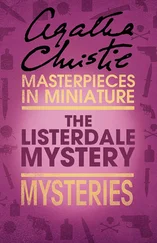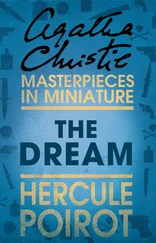Agatha Christie - The Labours of Hercules
Здесь есть возможность читать онлайн «Agatha Christie - The Labours of Hercules» весь текст электронной книги совершенно бесплатно (целиком полную версию без сокращений). В некоторых случаях можно слушать аудио, скачать через торрент в формате fb2 и присутствует краткое содержание. Жанр: Классический детектив, на английском языке. Описание произведения, (предисловие) а так же отзывы посетителей доступны на портале библиотеки ЛибКат.
- Название:The Labours of Hercules
- Автор:
- Жанр:
- Год:неизвестен
- ISBN:нет данных
- Рейтинг книги:4.33 / 5. Голосов: 3
-
Избранное:Добавить в избранное
- Отзывы:
-
Ваша оценка:
- 80
- 1
- 2
- 3
- 4
- 5
The Labours of Hercules: краткое содержание, описание и аннотация
Предлагаем к чтению аннотацию, описание, краткое содержание или предисловие (зависит от того, что написал сам автор книги «The Labours of Hercules»). Если вы не нашли необходимую информацию о книге — напишите в комментариях, мы постараемся отыскать её.
The Labours of Hercules — читать онлайн бесплатно полную книгу (весь текст) целиком
Ниже представлен текст книги, разбитый по страницам. Система сохранения места последней прочитанной страницы, позволяет с удобством читать онлайн бесплатно книгу «The Labours of Hercules», без необходимости каждый раз заново искать на чём Вы остановились. Поставьте закладку, и сможете в любой момент перейти на страницу, на которой закончили чтение.
Интервал:
Закладка:
THE LABOURS OF HERCULES
Agatha Christie
To Edmund Cork, of whose labours on behalf of Hercule Poirot I am deeply appreciative this book is affectionately dedicated.
FOREWORD
Hercule Poirot's flat was essentially modern in its furnishings. It gleamed with chromium. Its easy-chairs, though comfortably padded, were square and uncompromising in outline.
On one of these chairs sat Hercule Poirot, neatly – in the middle of the chair. Opposite him, in another chair, sat Dr Burton, Fellow of All Souls, sipping appreciatively at a glass of Poirot's Château Mouton Rothschild. There was no neatness about Dr Burton. He was plump, untidy, and beneath his thatch of white hair beamed a rubicund and benign countenance. He had a deep wheezy chuckle and the habit of covering himself and everything round him with tobacco ash. In vain did Poirot surround him with ashtrays.
Dr Burton was asking a question.
"Tell me," he said. "Why Hercule?"
"You mean, my Christian name?"
"Hardly a Christian name," the other demurred. "Definitely pagan. But why? That's what I want to know. Father's fancy? Mother's whim? Family reasons? If I remember rightly – though my memory isn't what it was – you had a brother called Achille, did you not?"
Poirot's mind raced back over the details of Achille Poirot's career. Had all that really happened?
"Only for a short space of time," he replied.
Dr Burton passed tactfully from the subject of Achille Poirot.
"People should be more careful how they name their children," he ruminated. "I've got god-children. I know. Blanche, one of 'em is called – dark as a gipsy! Then there's Deirdre, Deirdre of the Sorrows – she's turned out merry as a grig. As for young Patience, she might as well have been named Impatience and be done with it! And Diana – well, Diana -" the old Classical scholar shuddered. "Weighs twelve stone now – and she's only fifteen! They say it's puppy fat – but it doesn't look that way to me. Diana! They wanted to call her Helen, but I did put my foot down there. Knowing what her father and mother looked like! And her grandmother for that matter! I tried hard for Martha or Dorcas or something sensible – but it was no good – waste of breath. Rum people, parents…"
He began to wheeze gently – his small fat face crinkled up.
Poirot looked at him inquiringly.
"Thinking of an imaginary conversation. Your mother and the late Mrs Holmes, sitting sewing little garments or knitting: 'Achille, Hercule, Sherlock, Mycroft…'"
Poirot failed to share his friend's amusement.
"What I understand you to mean is, that in physical appearance I do not resemble a Hercules?"
Dr Burton's eyes swept over Hercule Poirot, over his small neat person attired in striped trousers, correct black jacket and natty bow tie, swept up from his patent leather shoes to his egg-shaped head and the immense moustache that adorned his upper lip.
"Frankly, Poirot," said Dr Burton, "you don't! I gather," he added, "that you've never had much time to study the Classics?"
"That is so."
"Pity. Pity. You've missed a lot. Everyone should be made to study the Classics if I had my way."
Poirot shrugged his shoulders.
"Eh bien, I have got on very well without them."
"Got on! Got on! It's not a question of getting on. That's the wrong view altogether. The Classics aren't a ladder leading to quick success like a modern correspondence course! It's not a man's working hours that are important – it's his leisure hours. That's the mistake we all make. Take yourself now, you're getting on, you'll be wanting to get out of things, to take things easy – what are you going to do then with your leisure hours?"
Poirot was ready with his reply.
"I am going to attend – seriously – to the cultivation of vegetable marrows."
Dr Burton was taken aback.
"Vegetable marrows? What d'yer mean? Those great swollen green things that taste of water?"
"Ah," Poirot spoke enthusiastically. "But that is the whole point of it. They need not taste of water."
"Oh! I know – sprinkle 'em with cheese, or minced onion or white sauce."
"No, no – you are in error. It is my idea that the actual flavour of the marrow itself can be improved. It can be given," he screwed up his eyes, "a bouquet -"
"Good God, man, it's not a claret." The word bouquet reminded Dr Burton of the glass at his elbow. He sipped and savoured. "Very good wine, this. Very sound. Yes." His head nodded in approbation. "But this vegetable marrow business – you're not serious? You don't mean -" he spoke in lively horror – "that you're actually going to stoop -" his hands descended in sympathetic horror on his own plump stomach – "stoop, and fork dung on the things, and feed 'em with strands of wool dipped in water and all the rest of it?"
"You seem," Poirot said, "to be well acquainted with the culture of the marrow?"
"Seen gardeners doing it when I've been staying in the country. But seriously, Poirot, what a hobby! Compare that to -" his voice sank to an appreciative purr – "an easy-chair in front of a wood fire in a long, low room lined with books – must be a long room – not a square one. Books all round one. A glass of port – and a book open in your hand. Time rolls back as you read," he quoted sonorously, translating from the Greek:
'By skill again, the pilot on the wine-dark sea straightens
The swift ship buffeted by the winds.'
"Of course you can never really get the spirit of the original."
For the moment, in his enthusiasm, he had forgotten Poirot. And Poirot, watching him, felt suddenly a doubt – an uncomfortable twinge. Was there, here, something that he had missed? Some richness of the spirit? Sadness crept over him. Yes, he should have become acquainted with the Classics… Long ago… Now, alas, it was too late…
Dr Button interrupted his melancholy.
"Do you mean that you really are thinking of retiring?"
"Yes."
The other chuckled. "You won't!"
"But I assure you -"
"You won't be able to do it, man. You're too interested in your work."
"No – indeed – I make all the arrangements. A few more cases – specially selected ones – not, you understand, everything that presents itself – just problems that have a personal appeal."
Dr Burton grinned.
"That's the way of it. Just a case or two, just one case more – and so on. The Prima Donna's farewell performance won't be in it with yours, Poirot!"
He chuckled and rose slowly to his feet, an amiable white-haired gnome.
"Yours aren't the Labours of Hercules," he said. "Yours are labours of love. You'll see if I'm not right. Bet you that in twelve months' time you'll still be here, and vegetable marrows will still be -" he shuddered – "merely marrows."
Taking leave of his host, Dr Burton left the severe rectangular room.
He passes out of these pages not to return to them. We are concerned only with what he left behind him, which was an Idea.
For after his departure Hercule Poirot sat down again slowly like a man in a dream and murmured: "The Labours of Hercules… Mais oui, c'est une idée, ça…"
The following day saw Hercule Poirot perusing a large calf-bound volume and other slimmer works, with occasional harried glances at various typewritten slips of paper.
His secretary, Miss Lemon, had been detailed to collect information on the subject of Hercules and to place same before him.
Without interest (hers not the type to wonder why!) but with perfect efficiency, Miss Lemon had fulfilled her task.
Hercule Poirot was plunged head first in a bewildering sea of classical lore with particular reference to "Hercules, a celebrated hero who, after death, was ranked among the gods, and received divine honours."
Читать дальшеИнтервал:
Закладка:
Похожие книги на «The Labours of Hercules»
Представляем Вашему вниманию похожие книги на «The Labours of Hercules» списком для выбора. Мы отобрали схожую по названию и смыслу литературу в надежде предоставить читателям больше вариантов отыскать новые, интересные, ещё непрочитанные произведения.
Обсуждение, отзывы о книге «The Labours of Hercules» и просто собственные мнения читателей. Оставьте ваши комментарии, напишите, что Вы думаете о произведении, его смысле или главных героях. Укажите что конкретно понравилось, а что нет, и почему Вы так считаете.












